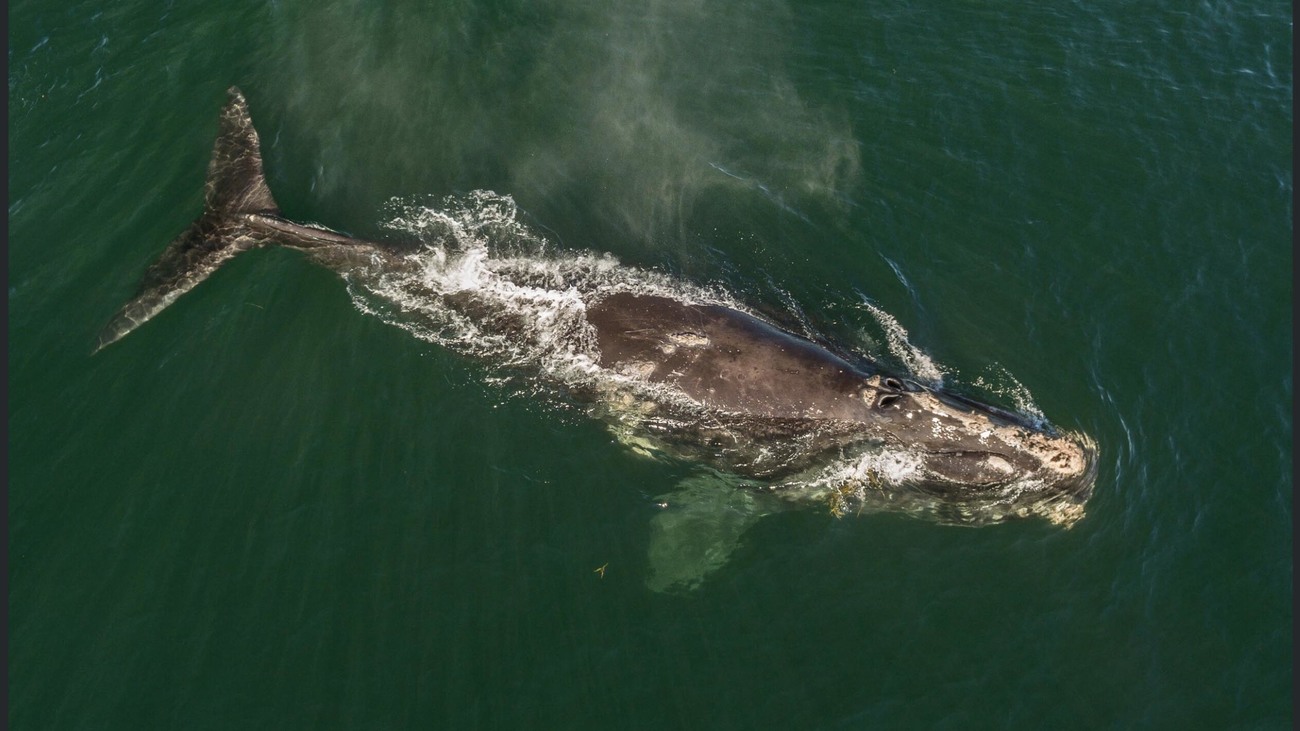Updates
How IFAW has helped animals and people during the Ukraine crisis
Learn moreThis World Whale Day, a plea for action to save a critically endangered whale

Birth of 14 calves celebrated, but outlook for North Atlantic right whale is bleak
(London, UK – 21 February 2021) - With the planet’s ocean giants in the spotlight for World Whale Day today (Sunday), conservationists are focussing on the plight of the North Atlantic right whale as the species teeters on the brink of extinction.
The estimated population, once in the tens of thousands, now numbers just 360 due to a variety of human-made threats such as entanglement in commercial fishing gear, ship strikes and ocean noise pollution.
The International Fund for Animal Welfare (IFAW) and others are working to reduce the threats and achieve greater protection for these critically endangered marine mammals; to increase their numbers in US and Canadian waters and help ensure their future survival.
One recent small ray of hope was the discovery of 14 new, surviving North Atlantic right whale (NARW) calves born this season – the highest number recorded in a single season in five years. With the population so depleted, every new whale birth is celebrated, particularly after severely low birth rates in recent years.
IFAW Marine Campaigner CT Harry said: “The birth of these 14 new whale calves is an encouraging development and one to be celebrated this World Whale Day. However, we must face hard truths at the same time. The challenges faced by these calves and the species as a whole are immense. Without swift, proactive action on multiple fronts, their survival is far from assured.”
IFAW is collaborating with the fishing industry, gear manufacturers and government legislators to find solutions. This includes testing and promoting the development and adoption of ropeless fishing gear technology to reduce the risk of entanglement. IFAW is also calling on US decision-makers to aim higher with legislation to protect these whales from entanglement in outmoded fishing gear.
In addition, IFAW campaigns for maritime regulations to include expansion of existing speed restrictions and altering shipping lanes to reduce vessel strikes. IFAW has assisted in the development of Whale Alert, an app for mariners to avoid potential vessel strikes, and works to educate consumers about safer fishing practices and for the introduction of whale-friendly seafood.
Harry added: “This is one of the most pressing marine conservation challenges of our day. It is our responsibility to ensure this season’s whale calves successfully navigate the ocean, and can do so long into the future along with their own young as well. If human activity has brought the North Atlantic right whale to this critical tipping point, then human proactivity, collaboration and 21st Century innovation can save it.”
Sadly, a 15th new whale calf was reported to have died, having stranded off the coast of Florida last week. This calf showed obvious signs of trauma from a vessel strike and is the first right whale death reported in US waters this year, though the third NARW calf death reported in just 13 months.
The remaining calves have now begun a perilous journey with their pods to feeding grounds off the shores of Cape Cod, US, and up to the Gulf of St Lawrence in Canada, manoeuvring through an industrial waterway dense with shipping traffic and an estimated one million commercial vertical fishing lines. The vast number of threats encountered during this migration can inflict both short and long-term stress, affecting critical growth and reproductive development of right whales, in addition to potential injury and death.
To take action for the North Atlantic right whale click here.
ENDS
For more information or to arrange interviews please contact Clare Sterling at IFAW on csterling@ifaw.org or +44 (0)7917 507717.
About the International Fund for Animal Welfare (IFAW) – The International Fund for Animal Welfare is a global non-profit helping animals and people thrive together. We are experts and everyday people, working across seas, oceans and in more than 40 countries around the world. We rescue, rehabilitate and release animals, and we restore and protect their natural habitats. The problems we’re up against are urgent and complicated. To solve them, we match fresh thinking with bold action. We partner with local communities, governments, non-governmental organizations and businesses. Together, we pioneer new and innovative ways to help all species flourish. See how at ifaw.org.
Every problem has a solution, every solution needs support.
The problems we face are urgent, complicated and resistant to change. Real solutions demand creativity, hard work and involvement from people like you.
Unfortunately, the browser you use is outdated and does not allow you to display the site correctly. Please install any of the modern browsers, for example:
Google Chrome Firefox Safari